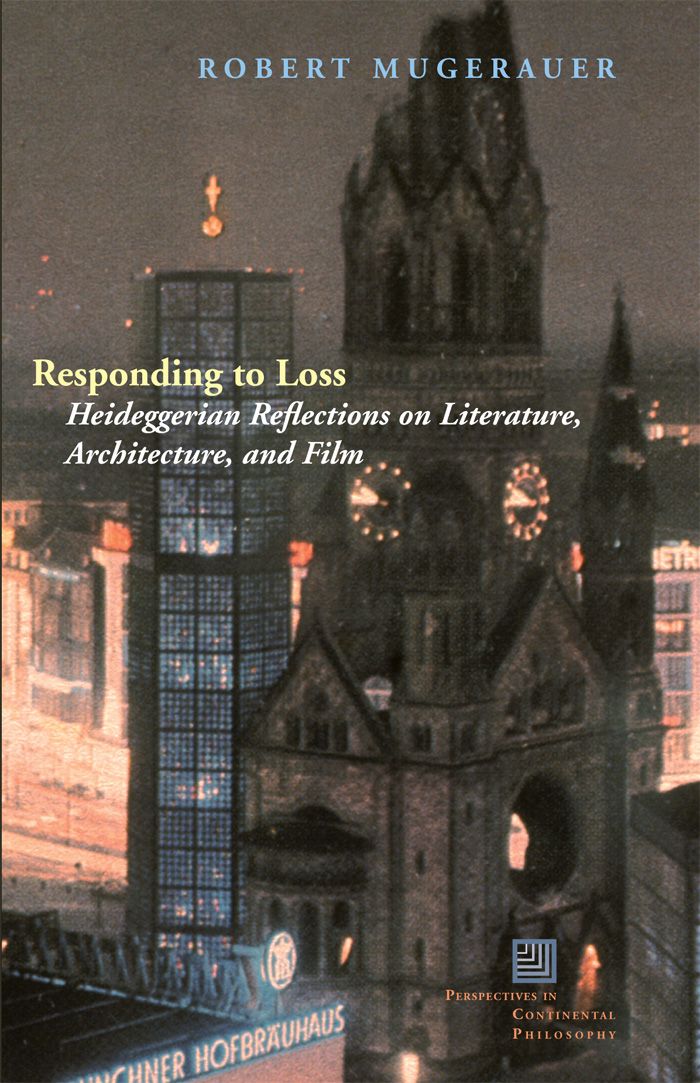Responding to Loss
Heideggerian Reflections on Literature, Architecture, and Film

This book can be opened with

Much recent philosophical work proposes to illuminate dilemmas of human existence with reference to the arts and culture, often to the point of submitting particular works to preconceived formulations. In this examination of three texts that respond to loss, Robert Mugerauer responds with close, detailed readings that seek to clarify the particularity of the intense force such works bring forth. Mugerauer shows how, in the face of what is irrevocably taken away as well as of what continues to be given, the unavoidable task of interpretation is ours alone.
Mugerauer examines works in three different forms that powerfully call on us to respond to loss: Cormac McCarthy’s The Crossing, Daniel Libeskind’s Jewish Museum Berlin, and Wim Wenders’s film Wings of Desire. Explicating these difficult but rich works with reference to the thought of Martin Heidegger, Jean-Luc Marion, Hannah Arendt, and Emmanuel Levinas, the author helps us to experience the multiple and diverse ways in which all of us are opened to the saturated phenomena of loss, violence, witnessing, and responsibility.
Bob Mugerauer is a leading authority on Heidegger and architecture. Here, he addresses the phenomenon of loss through multiple textual lenses, with a particularly thoughtful set of reflections on Liberskind’s Jewish Museum. How loss informs a meaningful lived world--and how that loss is reflected and enlarged through diverse art forms--is a topic that few have confronted in such a wise and engaging manner.
“An original and sensitive study that brings a Continental philosophical sensibility to the problem of loss destitution, suffering, and bearing witness to catastrophe. Mugerauer explores the question ‘How can we deal with what befalls us in life?’”
“In an interpretation that ranges from the writings of Martin Heidegger to a novel by Cormac McCarthy, a project by Daniel Libeskind, and a film by Wim Wenders, Mugerauer’s new book attunes its readers to the phenomenology of loss in a way that makes it palpable. Hinting at truths that lie hidden, turning our attention to the concealed play of shape, sound, voice, and structure, Mugerauer succeeds in ‘doing’ philosophy that engages the work of art in its concrete facticity. He breaks out of the convention of scholarly monographs and writes as if art mattered to the way we live our lives.”

